October, 23 and 24, 2025 – SARIL presents at the ALICE Logistics Innovation Summit
As 2024, the SARIL project was presented at the ALICE Logistics Innovation Summit at the Tangla Hotel in Brussels.
At the ALICE Logistics Innovation Summit 2025, SARIL took the spotlight as a key initiative shaping the future of European logistics. SARIL is dedicated to developing innovative solutions that make supply chains greener, more resilient, and better prepared for global challenges. The project showcased its latest research and practical approaches to reducing environmental impact while improving operational robustness. From advanced modelling tools to collaborative frameworks, SARIL is paving the way for logistics systems that can withstand disruptions and support Europe’s sustainability goals. Participants at the Summit had the opportunity to explore SARIL’s contributions through interactive sessions and an exhibition booth. These solutions are designed to help industry leaders, policymakers, and innovators work together towards a more sustainable and competitive logistics ecosystem.
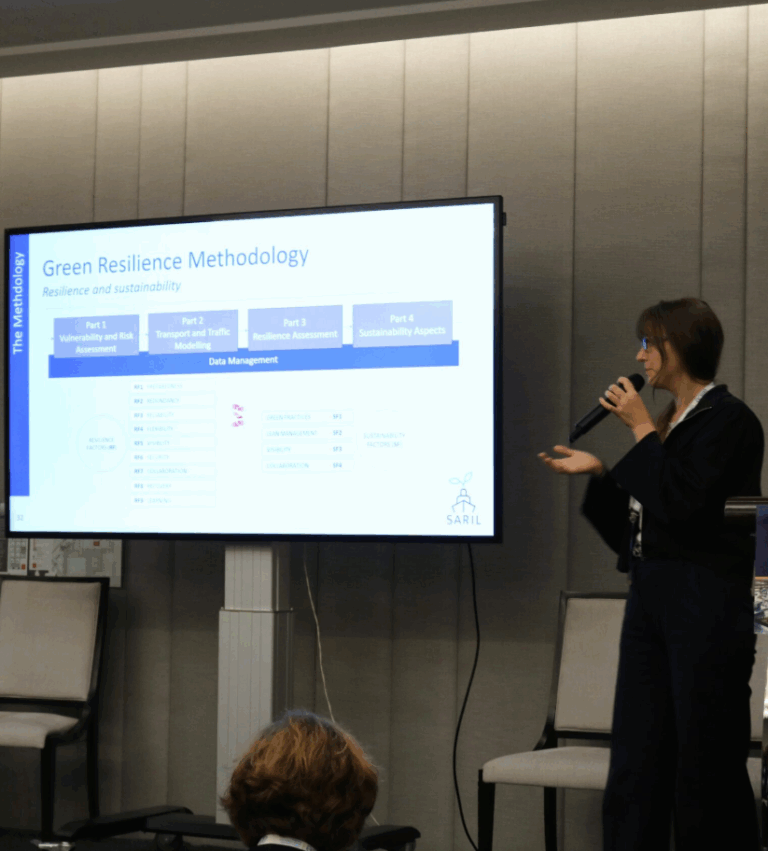
May 20 to 23, 2025 – General Assembly in Ourense
The third in-person general assembly meeting of the SARIL project took place in the university library at the Campus de Auga of the University of Vigo in Ourense, Spain. It was organized by UVIGO and most partner organisations participated to discuss the upcoming work of the project.
On the first day, an overview of the results of the stakeholder workshops performed via in-person as well as online meetings was provided. Afterwards tool development and validation/verification aspects were discussed on scenario level. The aim was to finalize the plans for tool interactions to be showcased in upcoming project deliverables. The second day was dedicated to exploitation aspects and the strengthening of transfer opportunities. After hearing short “sales pitches” of the different tools, the end-user partners of SARIL had several rounds of “speed dates” with tool developers to explore additional possible practical usages of the tools. In the afternoon, the partners’ s exploitation strategies as well as Key Exploitable Results were discussed. The morning of the third day was dedicated to discussing dissemination activities, administrative issues and to an interactive feedback session.
Besides the official part of the meeting, UVIGO also organized evening events to show the partners local attractions and made a short city tour at the last day before the partners departed.
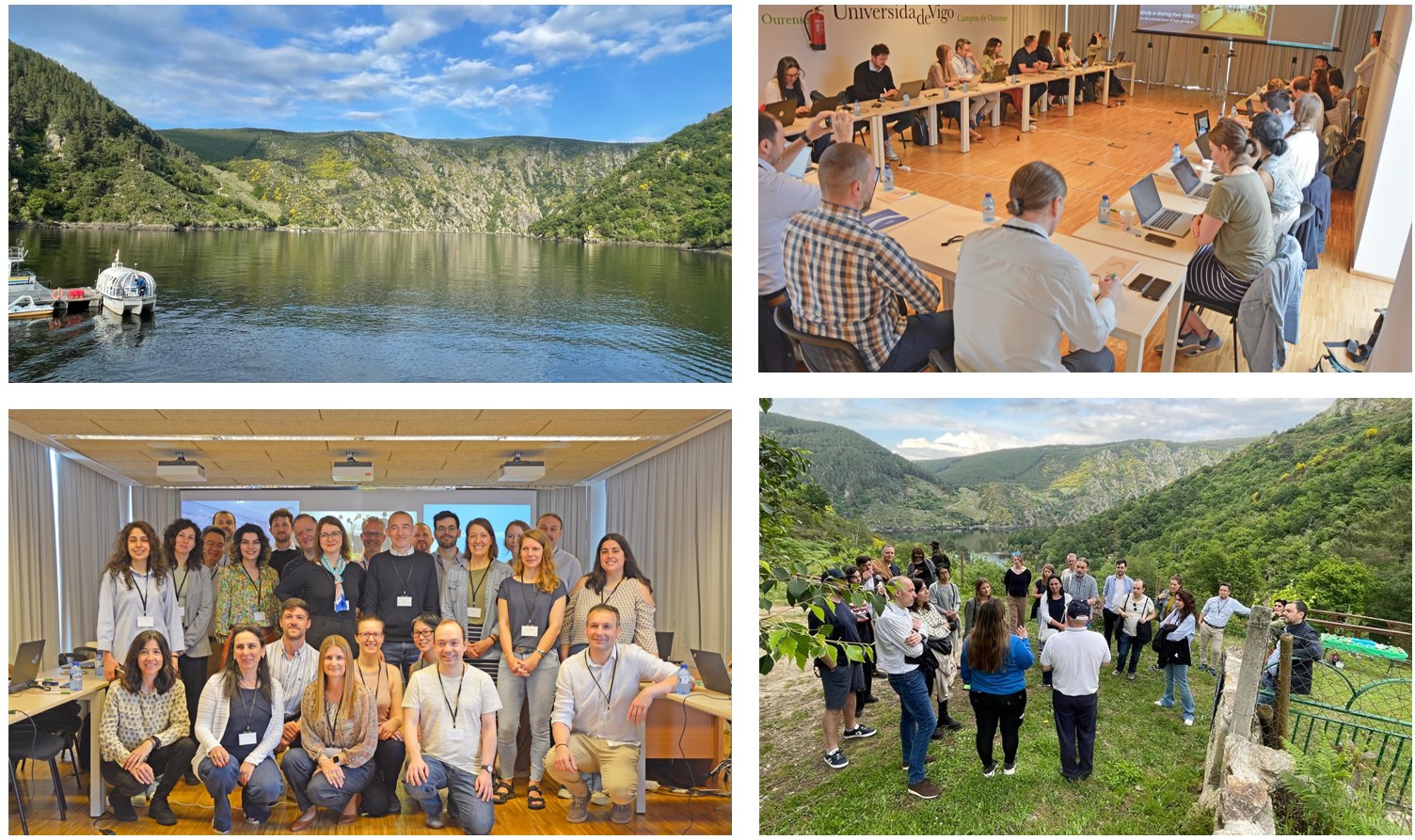
March 24 to 26, 2025 – SARIL partners meet in Vienna
Project members from CSL, L-PIT, Rangel and Fraunhofer were invited by Gebrüder Weiss GmbH (GW) to Vienna, Austria to discuss and sharpen the work performed in the European scenario, one of SARIL’s use cases, as well as exploitation perspectives for the developments of L-PIT and Fraunhofer. Potential business cases for the tools have been discussed for the deployment within GW’s and Rangel’s operational systems. Finally, the warehouse of GW in Vienna were visited which provided interesting insights for the SARIL project.
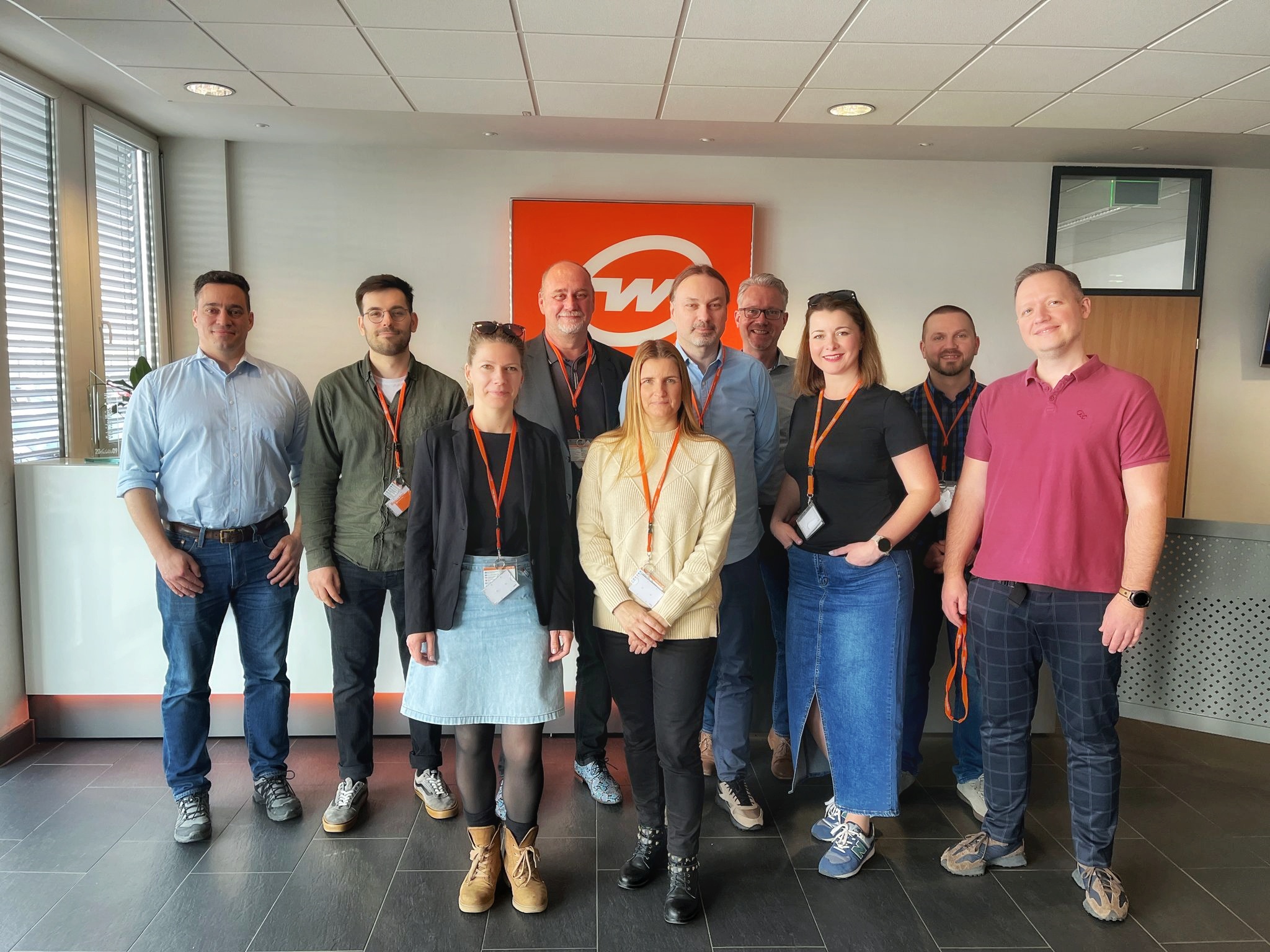
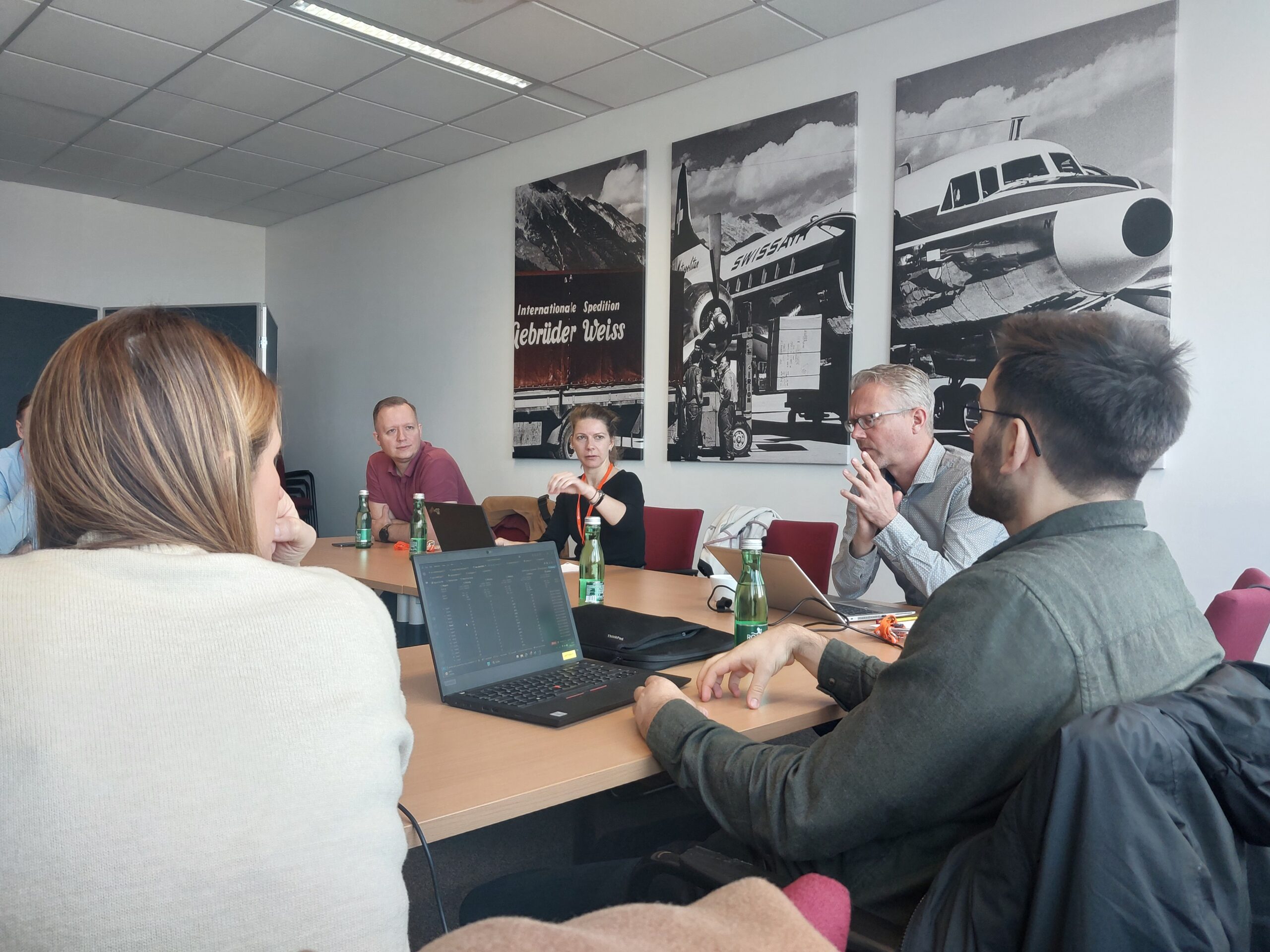
February 2025 – Press release on ReMuNet and SARIL
The sister projects SARIL and ReMuNet foster close collaboration in researching innovative solutions for the future logistics and transport sector. Their complementary approaches effectively leverage the knowledge generated by each project.
The press release can be found here: Press release
February 2025 – SARIL invites to online Pathway workshops!
The partners are happy to officially invite to the online SARIL Pathways workshops.
Save the dates!
First SARIL Pathways workshop: 18th of March (Deadline for sign-up: 10th of March)
Second SARIL Pathways workshop: 7th of May
Third SARIL Pathways workshop: to be announced
10:00-12:30 including breaks
Sign-up for the first workshop here: SARIL Pathways workshop(s) invitation and sign-up – SINTEF
The project SARIL is organising a series of three online workshops to discuss how to resiliently and sustainably respond to disruptions facing freight transport systems. We want to engage those who work in:
- Freight transport companies and NGOs
- Public administration and authorities across Europe owning transport infrastructure
- Technology and ITS providers and researchers working with such topics
- And others interested
The SARIL Pathways workshops builds on stakeholder input from earlier SARIL scenario workshops held in Spain, Poland and Italy, and will apply foresight thinking and back-casting techniques on the topic.
The first workshop is set to the 18th of March (10:00-12:30) and will discuss the proposed ambitious vision described below, its potential benefits and how it may be achieved:
A nationally joint information platform for publishing information across different transport sectors and levels about disruptions – such as flooding, wildfires, extreme weather, accidents or demonstrations – historic, in real-time and predictions/forecasts, as well as other solutions and mitigation options
Such a platform is aimed for transport and logistics service providers and their customers, emergency, readiness and risk services, and owners of transport infrastructure, as well as those providing disruption data and intelligent transport systems in European countries.
The workshop will give insight into the ongoing work of SARIL and its tool-kit for dealing with disruptions, and how this can be used to reach this joint platform vision. And not least the workshop will give room for discussion between interested stakeholders on the steps and measures needed to reach the vision, and barriers and drivers, including data needed, usability and access, as well as environmental and ethical concerns.
Topics for the second and third workshops are likely to concern data sharing across countries, goods owners’ role and responsibility, as well as technical opportunities for real-time detection of disruptive events (e.g., through different types of sensors). However, topics are open for feedback.
Information about how your data will be used in the project can be found here: Information letter
For questions, please contact: Lillian.Hansen@sintef.no
February 11 to 13, 2025 – SARIL at the RTR Conference 2025
The RTR Conference 2025, held in Brussels from 11-13 February, brought together 400 participants to explore the latest advances in EU-funded road transport projects. Now in its 8th edition, the conference provided a platform to discuss the achievements and impact of Horizon 2020 and Horizon Europe projects in areas such as green vehicles, urban mobility, logistics, intelligent transport systems, safety, and automated road transport.
On 12 February, SARIL participated in Session 12: “Sustainable and resilient freight transport and long-distance logistics”, moderated by Paola Chiarini (European Commission, DG MOVE) and Isabelle Schnell (Volvo Group). The session featured five EU-funded projects:
- SARIL – Sustainability and Resilience for Infrastructure and Logistics Networks
- ReMuNet – Resilient Multimodal Freight Transport Networks
- TRACE – Integration and Harmonisation of Logistics Operations
- SETO – Smart Enforcement of Transport Operations
- KEYSTONE – Knowledgeable, Comprehensive, and Fully Integrated Smart Solution for Resilient, Sustainable, and Optimised Transport Operations
SARIL’s vision for green and resilient logistics: SARIL coordinator Dr. Corinna Köpke (Fraunhofer Institute for High-Speed Dynamics, EMI) presented SARIL’s approach to enhancing resilience and sustainability in multimodal logistics networks. She highlighted SARIL’s key principle:
A system is resilient and sustainable if it uses minimal resources to withstand and recover from disruptions.
SARIL is developing decision support tools for logistics operators, transport authorities, and policymakers to:
- Mitigate disruptions through data-driven risk assessment
- Enhance predictive capabilities with digital twins
- Assess sustainability impact of different resilience strategies
Collaboration for a resilient future: SARIL aligns with ReMuNet’s work on AI-enhanced disruption management, real-time route optimisation, and the Physical Internet vision. Both projects highlight the need for greater data accessibility to enable smarter, more resilient supply chains.
Key takeaways of the RTR are:
Balancing resilience and sustainability: Ensuring that supply chains can withstand disruptions while reducing environmental impact remains a major challenge. Traditional resilience strategies, such as robust infrastructure and redundancy, can have a negative sustainability, whereas collaboration, visibility, and synchromodality benefit both.
The role of data and digitalisation: Access to real-time data is essential for proactive decision making, yet much of this data is not systematically captured, shared, or utilised – a missed opportunity for increasing resilience.
Legislative enforcement and digital transformation: SETO and KEYSTONE highlighted the barriers to compliance with transport regulations and the urgent need to accelerate digitalisation, including the transition to electronic Freight Transport Information (eFTI).
RTR 2025 reinforced the urgency of digital transformation, cross-sector collaboration, and regulatory support to future-proof Europe’s logistics and transport networks. SARIL is proud to contribute to this ongoing journey towards a more resilient, efficient, and sustainable freight transport system.
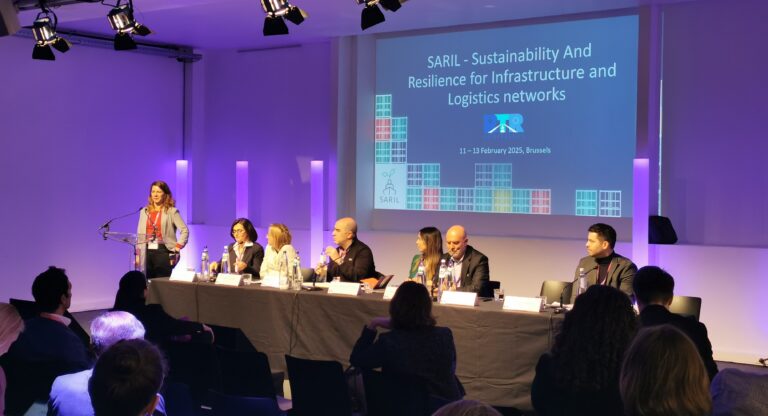
November, 6 and 7, 2024 – SARIL at the ALICE Logistics Innovation Summit
The SARIL project was presented at the ALICE Logistics Innovation Summit at the Tangla Hotel in Brussels. The corresponding exhibition booth was available for visitors.
The event celebrated the 10th Anniversary of ALICE and its Clusters. It brought together key stakeholders, policymakers, industry leaders, and innovators to explore the most pressing challenges and opportunities in the logistics sector in Europe and beyond. The Summit featured influential discussions with high-level representatives and thought leaders addressing the latest trends in logistics, such as sustainability, digitalisation, and competitiveness. Attendees had the possibility to take advantage of valuable networking opportunities to connect and collaborate with a diverse range of stakeholders, including ALICE members, industry executives, European policymakers, and research leaders. Additionally, the Summit hosted an exhibition where participants can explore innovative solutions and cutting-edge technologies presented by leading projects and companies shaping the future of logistics.

October, 24, 2024 – SARIL workshop in Vigo, Spain
The third scenario workshop of SARIL took place in Vigo, Spain. Focussing on the logistics in Northern Portugal and Spain, project members discussed with representative stakeholders the current practices and challenges. Stakeholders were divided into three groups; one for Portuguese-speaking participants and two more for Spanish-speaking ones. Each group got the same set of predefined questions to discuss as well as the possibility to add other aspects they considered important and might have not been asked. First, questions about the current situation in the sector were discussed. Afterwards, two imagined possible scenarios: “high knowledge but more costs/delays” and “high knowledge and less costs/delays” were used to collect thoughts and impressions. In both cases, answers were gathered on posters, they are used as the base for a joint discussion on what objectives are considered the most important.
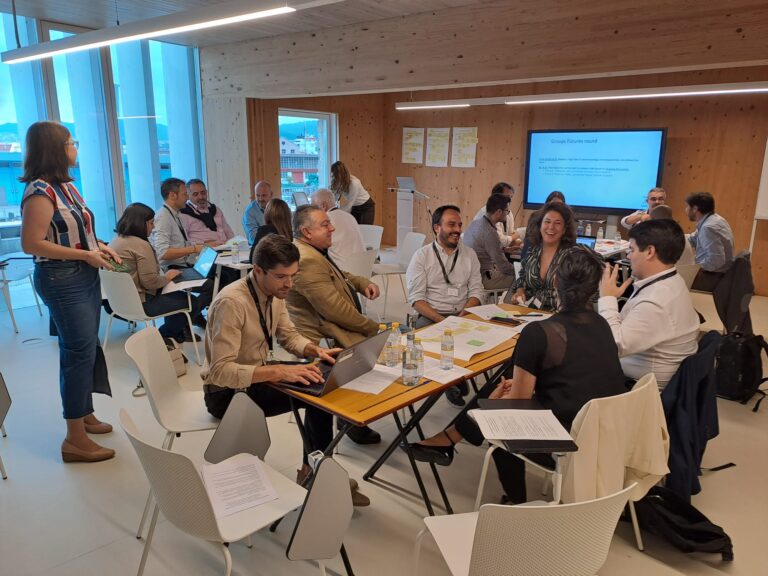
September, 18, 2024 – SARIL workshop in Szczecin, Poland
The second scenario workshop of SARIL took place in Szczecin, Poland. Considering the logistics sector on a European scale, project members discussed with stakholders how disruptions can be handled/mitigate today and in the future. By applying scenario thinking and dimensions found in survey in project, the main goal was to get input on three future images as constraints/frames to discuss solutions, tools, challenges, data sharing, sustainability and policies to better mitigate disruptions.
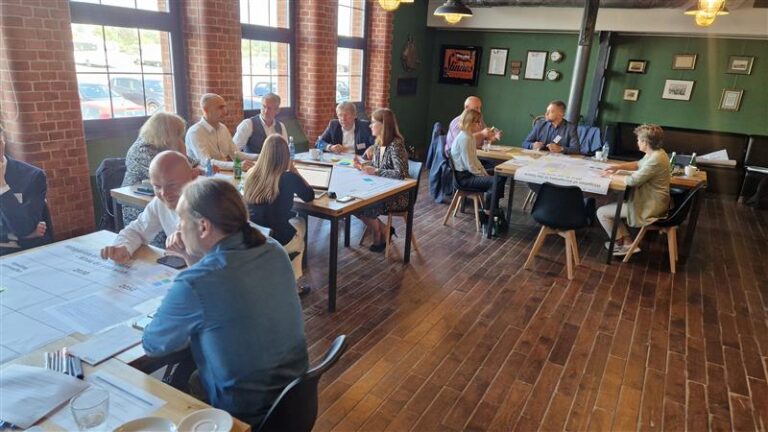
July 4, 2024 – SARIL and ReMuNet joint webinar on strategies and tools for sustainable and resilient intermodal transport networks
As part of its commitment to promoting resilient transport networks, the SARIL project hosted a webinar on 4 June 2024 on strategies and tools for sustainable and resilient intermodal transport networks. Organized by ALICE, the event was a joint effort with the ReMuNet project, highlighting the shared vision of creating a robust and adaptive supply chain in the face of globalisation and unforeseen disruptions.
The webinar featured a series of expert presentations, each highlighting innovative projects and technologies designed to improve the efficiency and accessibility of multimodal and intermodal transport networks. The agenda consisted of the following point:
- Welcome and introduction – Pablo Segura from ALICE set the scene, emphasising the importance of understanding and mastering the multimodal transport ecosystem to minimise disruptions.
- ReMuNet project insights – John von Stamm from FIR at RWTH Aachen University gave an overview of the ReMuNet project highlighting the project’s initial findings and future steps, focusing on creating a common understanding of disruptive events and developing a collaborative platform to facilitate information exchange between stakeholders.
- Intermodal services and optimisation – Florian Krietsch from PTV Group discussed tools for routing and network optimisation, enabling modal shift in different scenarios.
- Transparency and flexibility in intermodal transport – Lars Deiterding from HACON shared insights on how to make intermodal transport as transparent and flexible as modern multimodal passenger travel.
- Strategies for managing intermodal networks – Victor Becerra from DASSAULT SYSTEMES presented lessons learned and strategies for optimising intermodal transport networks.
- SARIL methodology – Corinna Köpke from Fraunhofer EMI introduced the SARIL methodology, which focuses on sustainability and resilience for infrastructure and logistics networks.
The joint efforts of SARIL and ReMuNet underscore the critical role of cooperation in promoting sustainable and resilient transport networks. By bringing together expertise and resources, these projects aim to create a more efficient and adaptive supply chain that can withstand the challenges of globalisation and unforeseen disruptions. The following key takeaways could be drawn from the webinar:
- Understanding the ecosystem – Both SARIL and ReMuNet emphasise the importance of a comprehensive understanding of the multimodal transport ecosystem. This includes recognising the impact of disruptive events and developing strategies to mitigate these impacts.
- Collaboration and data sharing – The need for improved collaboration and data sharing between stakeholders was a recurring theme. ReMuNet’s collaborative platform and SARIL’s disruption information interface are key to facilitating this exchange.
- Innovative tools and technologies – The webinar showcased various tools and technologies designed to optimise routing, increase transparency, and improve the overall efficiency of intermodal transport networks.
- Sustainability and resilience – Both projects are committed to promoting sustainability and resilience in transport networks. This includes developing green business models, improving regulatory frameworks and using advanced analytical and forecasting tools.
June 3, 2024 – First SARIL workshop in Milan, Italy
The first scenario workshop of SARIL took place in Milan, Italy. Based on the findings from SARIL’s survey, project members discussed with representative stakeholders the current practices and challenges of the logistics sector. Stakeholders suggested that the mitigation of disruption impacts could be enhanced by improved communication and data sharing, that the establishment of backup solutions in case data is unavailable is relevant and that the promotion of advantageous policies as well as investment in training is of high importance.
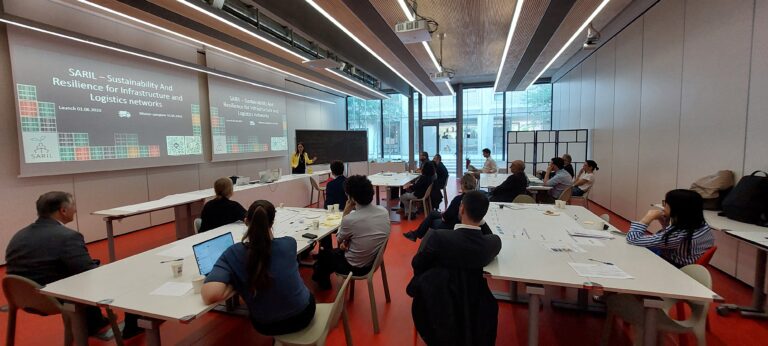
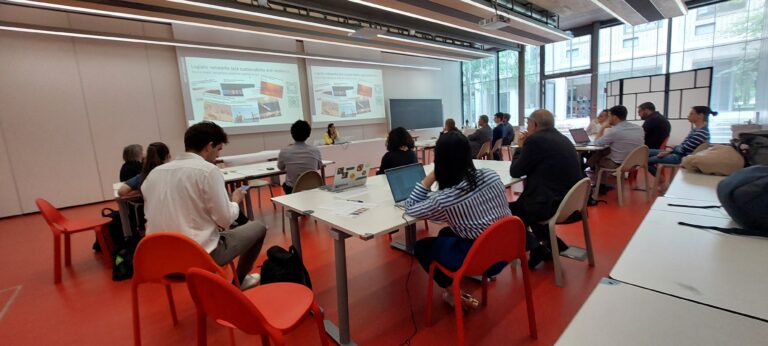
May 7 and 8, 2024 – General Assembly in Norway
Organized by Marlo,
the second in-person meeting of SARIL took place on Oscarsborg island near
Oslo, Norway. All partner organisations were present to shape the work to be done in
the project.
First, the results of the surveys were presented by Sintef and discussed before the tool developers gave an update on the recent progress. This was followed by an encompassing assessment of the optimal focuses of the different tools regarding the aims of the project and the individually addressed logistics stakeholders. At the second day, the consortium did a test run of the planned workshop implementation to identify possible caveats. This was followed by the discussion of administrative topics and a resume of the project work done so far. The meeting concluded with a guided tour of the historically important island.
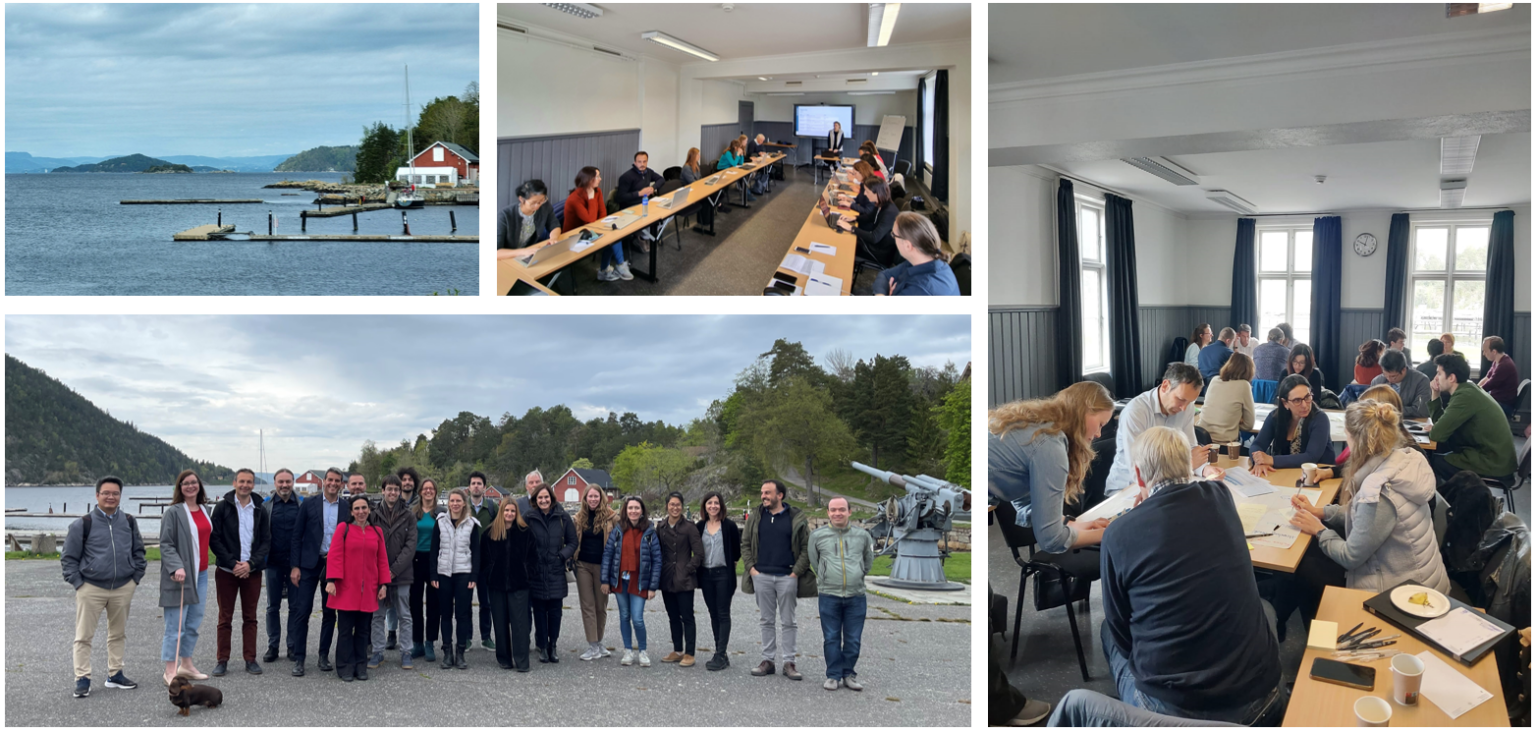
April 2024 – SARIL at TRA2024 in Dublin
This April, the Transport Research Arena (TRA) 2024 unfolded in Dublin, Ireland, bringing together over 4,000 participants from 50 countries to explore and advance sustainable and inclusive mobility. As a cornerstone event in the European transport calendar, TRA2024 provided a platform for discussions on the future of transport and mobility.
At TRA2024, the SARIL project showcased its innovative approaches and findings at a joint stand with its sister project, ReMuNet, within the ALICE Logistic Innovation Village. This strategic placement provided a great opportunity for both projects to highlight their contributions to sustainability and resilience in freight transport. The ALICE Logistic Innovation Village, a hub for cutting-edge projects, was buzzing with activity, facilitating exchanges that are crucial for the development and deployment of new technologies and methodologies.
Thanks to the joint stand, SARIL and ReMuNet projects were able to engage in the intensive networking and discussions, focusing on future collaborations that could further enhance the resilience and sustainability of multimodal freight networks. These discussions highlighted the complementary nature of the two projects, with SARIL focusing on the environmental impact and system robustness, and ReMuNet enhancing real-time responses to disruptions in transport corridors.
As we move forward, the insights gained from TRA2024 will undoubtedly play a crucial role in guiding the SARIL project’s strategies and implementations, ensuring a greener, more robust transport infrastructure for the future.
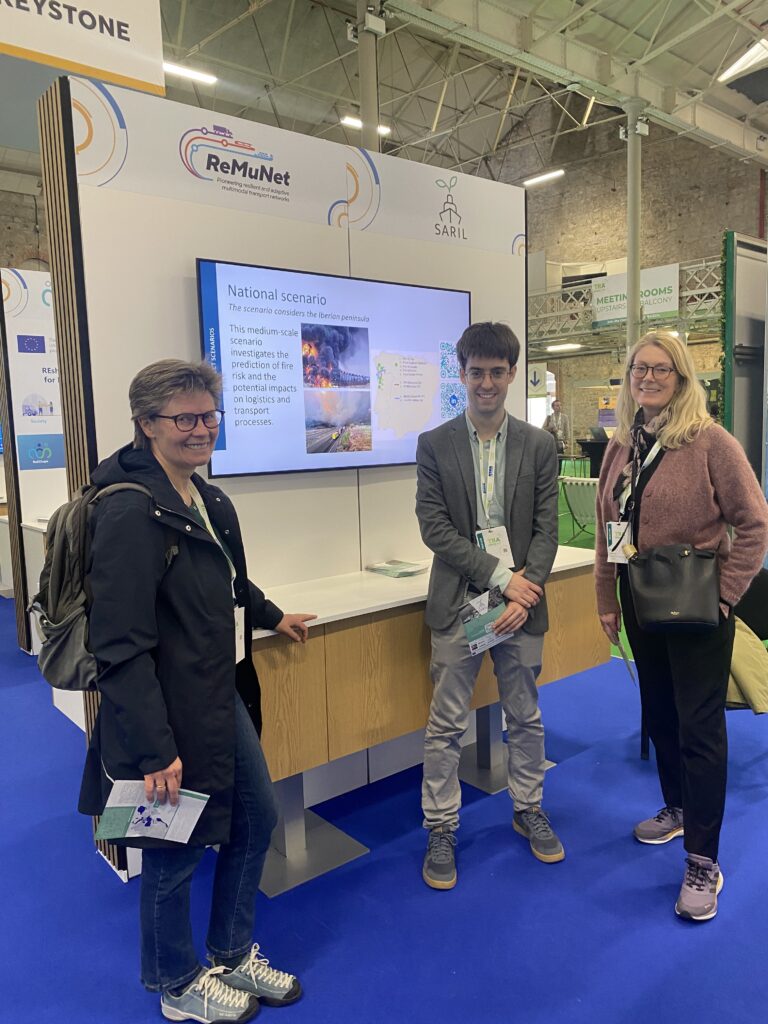
March 13 and 14, 2024 – Visit of Fraunhofer at Gebrüder Weiss GmbH
A delegation of Fraunhofer researchers visited the facilities of Gebrüder Weiss GmbH (GW) in Lauterach, Austria from Mach 13 to 14, 2024. The exchange with several logistics experts at GW has helped to provide a better understanding of disruption handling and supports the tool development in SARIL. The branch manager of GW Vorarlberg, Stefan Oberhauser, presented their logistics processes and GWs attempts towards a sustainable transport infrastructure.
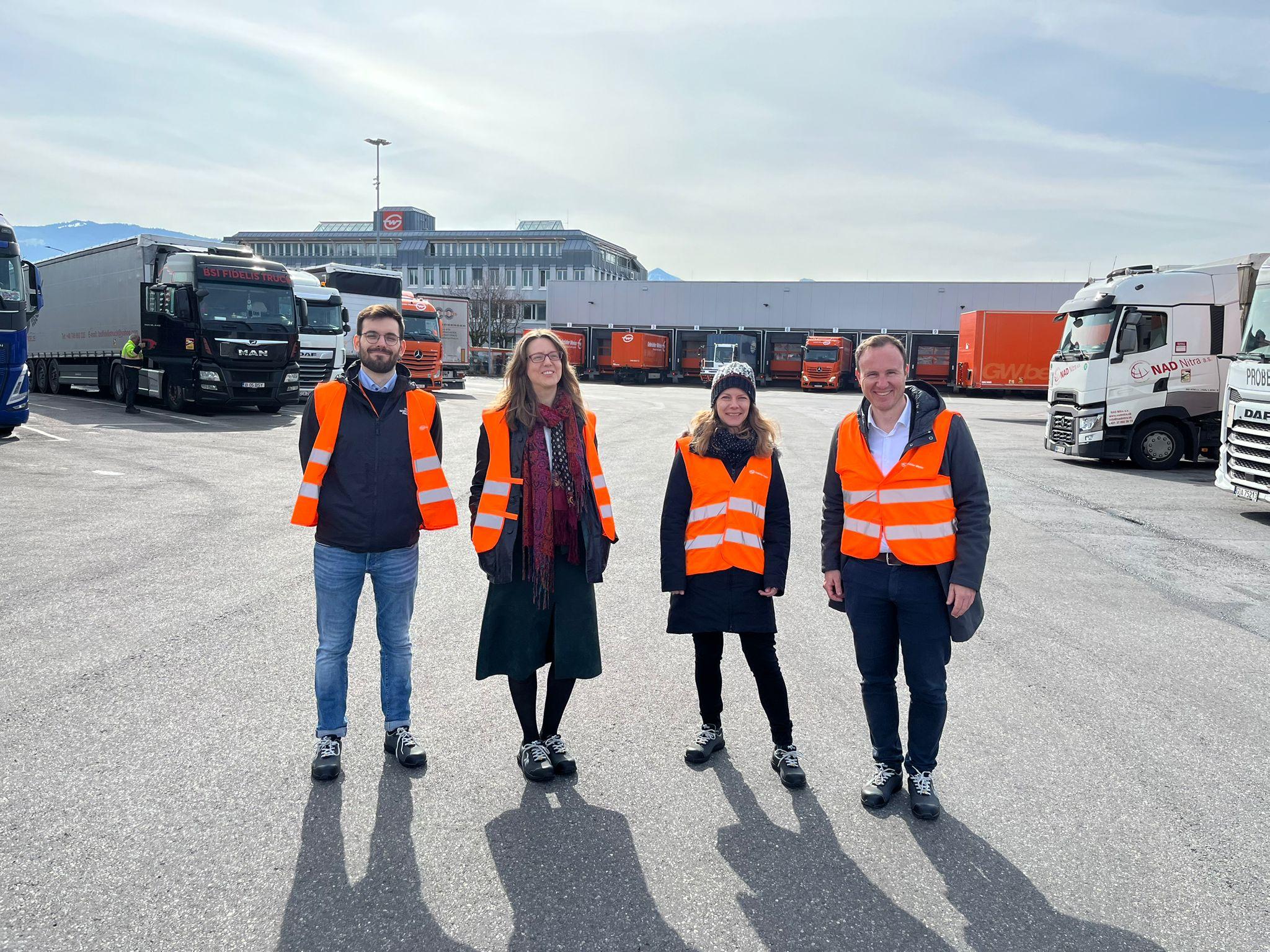

February 15, 2024 – Survey addressing researchers is out now
Following the Stakeholder Survey (see the post below), SARIL is currently conducting a survey for fellow researchers in the fields of transport, resilience and sustainability to get their views on disruptions and the importance of the different attributes of resilience.
We will highly appreciate if you could take 10 minutes to answer the following survey https://www.netigate.se/a/s.aspx?s=1199574X419729722X15054. Forwarding this email to relevant people in your organisation is also most welcome.
January 12, 2024 – Stakeholder Survey of SARIL and ReMuNet is out now
Recent events, including floods, snowstorms, wildfires, pandemic restrictions, wars, and cyberattacks, have affected European infrastructure and transport networks. Given the growing influence of climate change and unforeseen global incidents, are you worried about the potential impact on your organisation? Have you encountered such disruptions in your daily operations, or do you believe your business is susceptible to such disruptions? How do you deal with disruptions and which technologies support you to exchange information with your partners and clients? We would like to know more about your thoughts and experiences, as these can provide invaluable results for our research. Therefore, we invite you to answer our questionnaire survey of the EU-projects ‘Sustainability And Resilience for Infrastructure and Logistics networks’ (SARIL) and ‘Resilient Multimodal freight transport Network’ (ReMuNet).
Follow this link to answer the survey https://app2.welphi.com/Pages/RedirectPage.aspx?Py8pSeNwxntre9y0udSoQ2w7mkgT0zrnq/5Q6WJC4mCawcPerYs1kvGeuUABei+d or forward this email to a relevant person in your organisation.
January 11, 2024 – ALICE webinar with SARIL and ReMuNet
ALICE announces a webinar for January 11, 2024. In this webinar, Paola Chiarini will give insights into the perspective of the European Commission and the renowned expert Prof. Alan McKinnon will talk on outlook and perspectives of resilient and green freight transport. The projects SARIL and ReMuNet will outline their strategies and demonstrate how they intend to contribute towards addressing their challenges.
For more information and registration see:
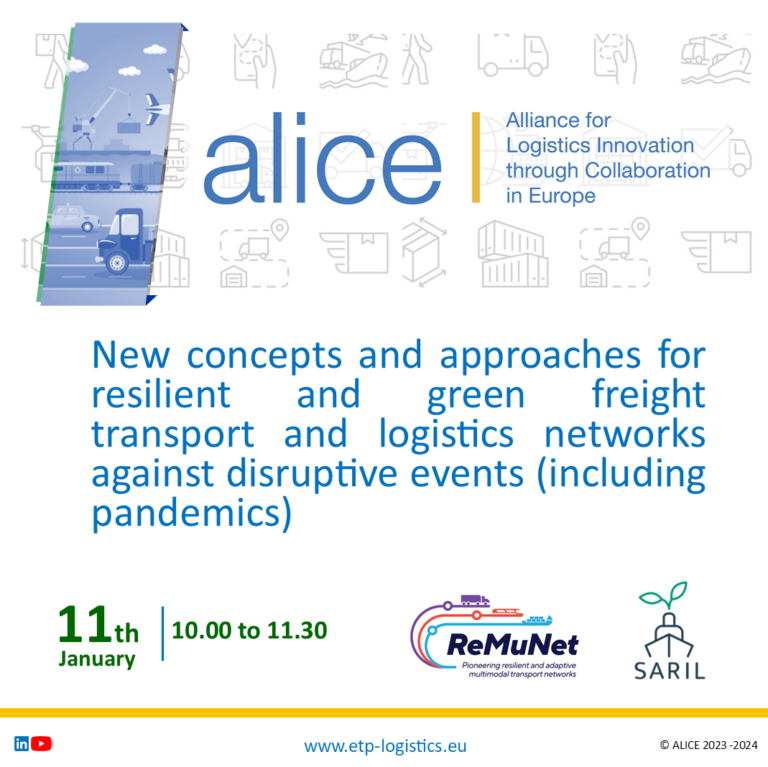
October 24 and 25, 2023 – General Assembly Meeting in Freiburg, Germany
The first in-person meeting of the project took place in Freiburg, Germany, over two days. All 15 project partner organisations were represented and 31 people joined the meeting. First, Prof. Alexander Stolz gave an introduction of Fraunhofer and specially the Ernst-Mach-Institut.
The status of all work packages and some administrative items were presented. The software that will be developed in SARIL has been presented by the tool developers to identify potential synergies. Especially, the collaboration with SARIL’s sister project ReMuNet (https://remunet-project.eu/) was discussed. Finally, the meeting was closed by a Freiburg city tour in rainy weather with some remaining brave people.
July 19, 2023 – Virtual Kick-off meeting
The kick-off meeting was held digitally on July 19, 2023.
The consortium met with the Project officer Marjolein Salens from CINEA and Paola Chiarini from DG MOVE which shared some general information on the grant. A project overview was given and the three scenarios of the project were presented, i.e. the regional in the city of Mantua in Italy, the national scenario on the Iberian Peninsula and the global/EU-wide scenario focused on the silk road.
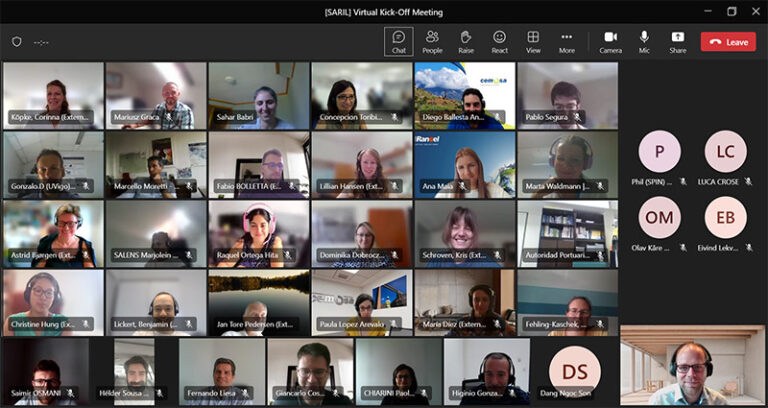
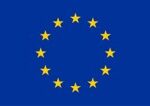
Funded by the European Union under grant agreement ID 101103978. Views and opinions expressed are however those of the author(s) only and do not necessarily reflect those of the European Union or the European Climate, Infrastructure and Environment Executive Agency. Neither the European Union nor the granting authority can be held responsible for them.
